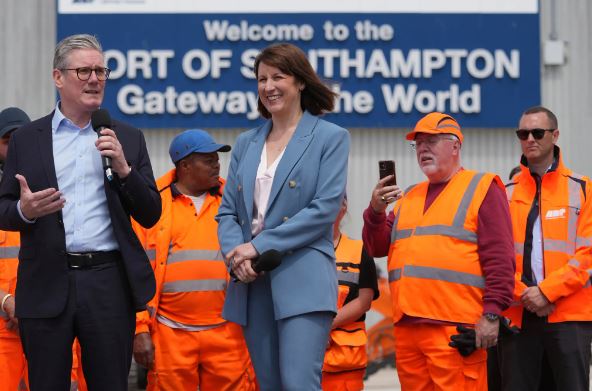After 14 years out of power, Britain’s Labour Party has returned to governance, with Rachel Reeves making history as the country’s first female Chancellor of the Exchequer. Her primary challenge is to rejuvenate Britain’s stagnant economy. For inspiration, she looks to U.S. Treasury Secretary Janet L. Yellen.
Reeves was appointed Chancellor following Labour’s victory in Thursday’s general election. She plans to implement an economic strategy influenced by Yellen, whose policies have spurred job creation and manufacturing investment in the United States.
Yellen’s “modern supply-side economics” aims to boost growth by increasing the workforce, enhancing productivity, and reducing inequality. This approach incentivizes companies to invest domestically and create jobs, especially in green sectors. Reeves’s version, dubbed “securonomics,” emphasizes resilience and security for the national economy and working people, suggesting a more activist government role. Labour’s plans include an industrial strategy, a national wealth fund, and a publicly owned energy company.
Reeves is also influenced by economist Dani Rodrik, who advocates “productivism,” a partnership between governments and businesses to create more productive jobs. This represents a shift from the Conservative Party’s preference for a smaller state and free market.
Reeves points to the U.S. recovery from the pandemic as justification for her approach. While Britain has seen sluggish growth, the U.S. economy has expanded significantly, with nearly 16 million jobs created since President Biden took office. The success of Yellen’s policies has prompted other countries to reconsider their economic strategies.
However, implementing similar policies in Britain may be challenging due to financial constraints. The U.S. Inflation Reduction Act, which supports green manufacturing and consumer incentives, is projected to cost over $800 billion in the next decade. Britain’s high debt levels and tax rates, combined with urgent spending needs, limit its ability to adopt such expansive measures.
Reeves has committed to not raising the three main taxes and adhering to a fiscal rule to reduce debt within five years. Labour aims to improve public finances through economic growth and private sector investment. Stability, Reeves believes, will foster growth, investment, and better jobs. She plans to strengthen Britain’s institutions, like the Office for Budget Responsibility, and focus on policy changes that don’t require substantial spending, such as overhauling the planning system for development.
Despite these ambitions, some view Reeves’s constraints as limiting. Labour recently abandoned a pledge to invest £28 billion annually in green projects, reflecting a cautious approach. Critics argue that Labour needs bold actions to address poverty, inequality, green investment, and public services.
Labour leader Keir Starmer has avoided making large, ideological bets, haunted by the legacies of former Labour leader Jeremy Corbyn and former Conservative Prime Minister Liz Truss. Instead, Labour promotes pragmatism. Reeves, an economist, often references her six-year tenure at the Bank of England and her stint at the British Embassy in Washington. She returned to Washington last year, meeting officials, including Yellen, and outlining her vision of a changing global economy leaving Britain behind.
Reeves asserts that globalization as previously known is over, advocating for a “new multilateralism” with partnerships between nations sharing values and interests. This perspective is influenced by Rodrik, who believes “hyperglobalization” has ended and advocates for prioritizing domestic economic and environmental goals. While some economists warn of potential protectionism, Rodrik suggests that focusing on critical technologies and non-competitive weakening measures could mitigate this risk.

